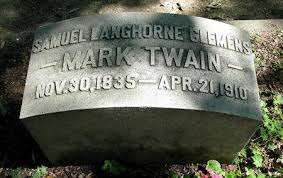Ida Wells Barnett was born in 1862 and lived part of her life as a slave, then later became a journalist. [http://www.cbn.com/special/blackhistory/bio_idabwells.aspx]During Well’s lifetime, she faced many challenges because of her skin color. However, this led her to become actively involved in civil rights and post many articles about the subject.
[http://pr-diva.com/2011/02/celebrating-black-history-month-ida-b-wells-barnett/]
Ida Wells Barnett was born into slavery, and even after the end of the Civil War, her parents remained at their original jobs. However, they had great expectations of their children getting quality educations. This is what led Ida to become a teacher at the age of 18, and then furthered her education at Fisk University. [http://www.cbn.com/special/blackhistory/bio_idabwells.aspx]
Life was not always easy for Wells. In her daily life she still faced many struggles with racial issues. One particular instance even lead to her suing the Chesapeake and Ohio Railroad company when she was told she would have to move to a segregated car. [http://www.idabwells.org/index.php?option=com_content&view=article&id=48&Itemid=64] These situations caused Wells to begin her journalism career by writing articles under the name “Lola” in black publications. [http://www.cbn.com/special/blackhistory/bio_idabwells.aspx]
This was just the start for Wells in her new career path. She then purchased partial interest in the Memphis Free Speech and Headlight and became its editor. Wells then became very interested in writing controversal articles about things such as separate but not equal schools. [http://www.cbn.com/special/blackhistory/bio_idabwells.aspx]
Wells writing lead during her time period however soon became an issue for her daily life. Angered by some of her articles, a mob attacked and destroyed her newspapers offices and threatened Wells’ life. However, this did not stop Wells, she later went on to write an anti-lynching pamphlet called “A Red Record”. [http://www.cbn.com/special/blackhistory/bio_idabwells.aspx]
[http://en.wikipedia.org/wiki/Ida_B._Wells]
Wells went on in life to achieve many great successes in the movement for equal rights. Wells participated in the founding of the National Association for the Advancement of Colored People, helped with movements to give blacks the right to vote, and gave many inspirational speeches. [http://www.cbn.com/special/blackhistory/bio_idabwells.aspx]Wells daily life truly became devoted to helping with racial issues and equality.
In my opinion, Wells life was greatly influenced by issues of her time period. Wells gave her time and dedication to help in the support for equal rights. This affected how she was treated, and made life difficult for her by receiving death threats. However, Wells continued to write, inspired by her want for racial equality. To me, Wells is a great inspiration in standing up for what you believe in.







